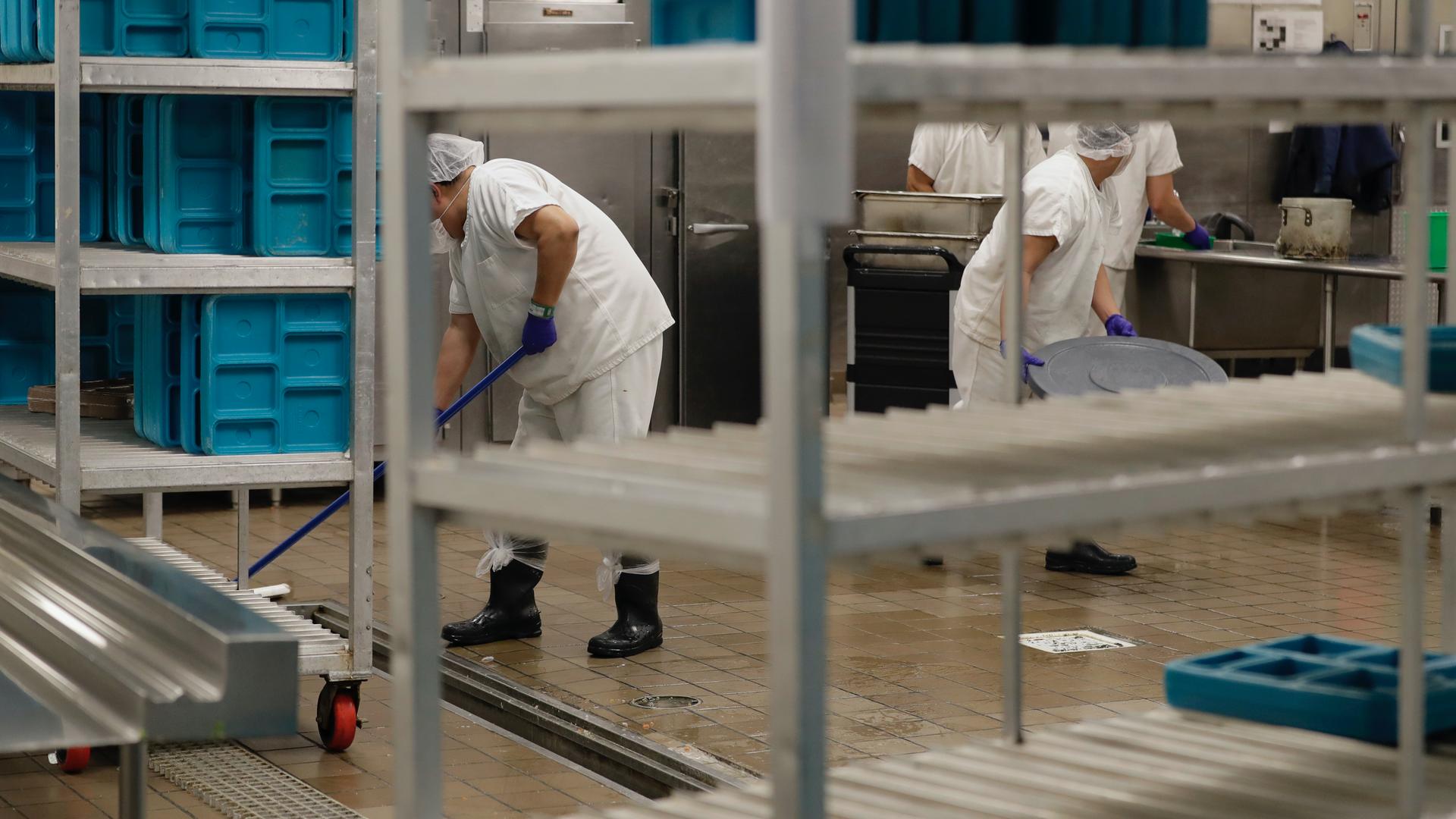Carlos Amaya goes over the jobs he did at the Northwest ICE Processing Center in Tacoma, Washington, south of Seattle.
He was tasked with wiping down all the tables and sanitizing the phones, but without protective equipment, he said.
“Sometimes, our skin would turn red from using harsh chemicals to disinfect,” he said from his family’s home on the East Coast.
Amaya, 20, who’s from El Salvador, was released from the detention center in October. He spent two years there, he said.
The Northwest ICE Processing Center is a privately run immigration detention facility, with a capacity of about 1,575 beds, managed by The GEO Group. They paid Amaya and other detainees just $1 a day for the work they did there.
But that could soon change.
Washington state’s attorney general sued The GEO Group over those wages. Last week, a federal jury said the company owes current and former migrant detainees the state’s minimum wage — about $13 an hour.
It’s a fight that’s years in the making for immigrant rights advocates and current and former detainees, who would also qualify for back pay.
“It’s only right,” said Manuel Abrego, also a former detainee at the Tacoma detention center who now works with the grassroots immigrant-led organization, La Resistencia, organizing the migrant community in Washington state. Abrego said he’d work overnight, waxing the floors in the entire facility.
“We’re the ones keeping those facilities running. It’s like modern-day slavery.”
“We’re the ones keeping those facilities running,” he said. “It’s like modern-day slavery.”
Silky Shah, executive director of Detention Watch Network, a national group that wants to end immigrant detention, said that model is how private detention companies make a profit from housing migrant detainees.
“And often [those jobs are] coerced because they get a dollar a day, and they use that money to get services in the commissary or use it for phone calls or other things that they might need,” she said.
The GEO Group didn’t respond to an interview request, but they’re expected to appeal the jury’s decision. If they lose that, this could be a significant win, Shah said, because Washington state is also set to ban for-profit detention centers by 2025.
Related: The US farmworker shortage spurs farmers to lobby for immigration reform
About 79% of people detained each day in ICE custody are held in private detention facilities. President Joe Biden campaigned on ending the use of private companies to run immigration facilities. That’s after the number of government contracts with private companies increased during the Trump administration.
So far, Biden has only ordered the Justice Department to end the use of private prisons, but that leaves out contracts under the Department of Homeland Security, which oversees immigration detention.
Still, many immigrant rights advocates are encouraged by the jury’s decision, including Maru Mora Villalpando, an organizer with La Resistencia and who’s closely monitoring the lawsuit. She said she’s hopeful it’s a step closer toward ending private detention in the US, and eventually, all immigration detention.
The judge still has to say how much money could be owed, Villalpando said, but the organization is already mobilizing to reach as many people as it can.
“We are starting to write letters that we’re going to send to everyone that we’re in touch with at the detention center, letting them know of their victory and letting them know that, you know, they’re supposed to now be paid minimum wage,” she said.
She’s also compiling a list of people who spent time at the detention center, but who were deported — letting them know that they might qualify for back pay.
Meanwhile, Amaya — who just left detention and just found out about the jury’s decision — said he’s working on getting his GED now.
He’s also thinking about what he might do if he receives pay for the hours he spent cleaning up the detention center he was once held in.
“I don’t need too much money, right now,” he said, “but maybe I’ll be able to hire a lawyer to keep helping with my immigration case.”
Then, he paused and said he’ll donate it to migrants still at the detention center in Tacoma, to help them with what they might need.
“Because I was there,” he said. “I know what it’s like.”
